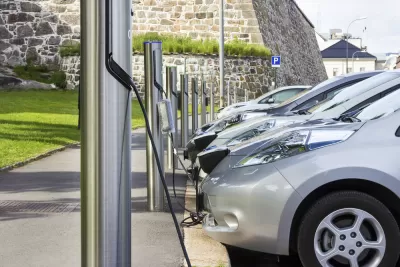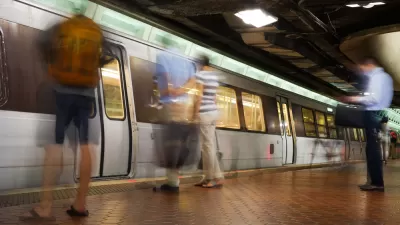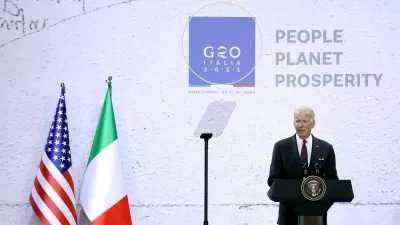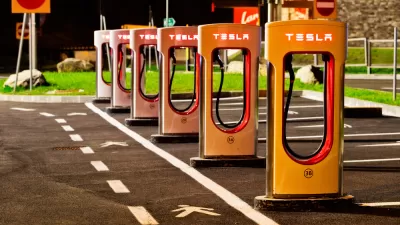The federal government, and even some automakers, seemed poised to nudge the country toward a future of electric vehicles. But the American preference for large trucks will be an obstacle to those plans.

"After four years of bitter fighting, California and the federal government agree they need to set ambitious climate goals, and major automakers are increasingly betting that the future of their business lies with electric cars," reports Anna M. Phillips.
The discussion follows a groundbreaking executive order signed by California Governor Gavin Newsom in September 2020 committing the largest state in the nation to end sales of new gasoline powered cars by 2035.
Trends in the automotive market of recent years have been moving the needle the other direction, according to Phillips, as more Americans are increasingly buying larger SUVs and pickup trucks. An analysis published in January 2021 shows the market shift to SUVs and pickups has overwhelmed the potential carbon reductions from EV use. Some automakers have signaled a willingness to change direction. General Motors, for example, recently announced ambitions to achieve carbon neutrality in its fleet and its operations by 2040.
Other studies have also shown that switching to electric vehicles won't entirely remove emissions and pollution from private transportation in the United States.
The dilemma facing the Biden administration is how to calibrate electric vehicle policies relative to market preferences for larger, gas-powered vehicles. "This divide between the reality of America’s auto market and what the federal government and some automakers hope it will become is certain to create dilemmas for the Biden administration as it sets out to negotiate a new set of fuel-economy standards," writes Phillips.
The article includes a specific list of policy efforts the Biden might undertake to begin removing greenhouse gas emissions from the U.S. transportation sector, much of which will be devoted to undoing the deregulatory efforts of the Trump administration.
FULL STORY: Biden’s auto dilemma: How hard to push for electric cars?

Maui's Vacation Rental Debate Turns Ugly
Verbal attacks, misinformation campaigns and fistfights plague a high-stakes debate to convert thousands of vacation rentals into long-term housing.

Planetizen Federal Action Tracker
A weekly monitor of how Trump’s orders and actions are impacting planners and planning in America.

Chicago’s Ghost Rails
Just beneath the surface of the modern city lie the remnants of its expansive early 20th-century streetcar system.

Bend, Oregon Zoning Reforms Prioritize Small-Scale Housing
The city altered its zoning code to allow multi-family housing and eliminated parking mandates citywide.

Amtrak Cutting Jobs, Funding to High-Speed Rail
The agency plans to cut 10 percent of its workforce and has confirmed it will not fund new high-speed rail projects.

LA Denies Basic Services to Unhoused Residents
The city has repeatedly failed to respond to requests for trash pickup at encampment sites, and eliminated a program that provided mobile showers and toilets.
Urban Design for Planners 1: Software Tools
This six-course series explores essential urban design concepts using open source software and equips planners with the tools they need to participate fully in the urban design process.
Planning for Universal Design
Learn the tools for implementing Universal Design in planning regulations.
planning NEXT
Appalachian Highlands Housing Partners
Mpact (founded as Rail~Volution)
City of Camden Redevelopment Agency
City of Astoria
City of Portland
City of Laramie





























